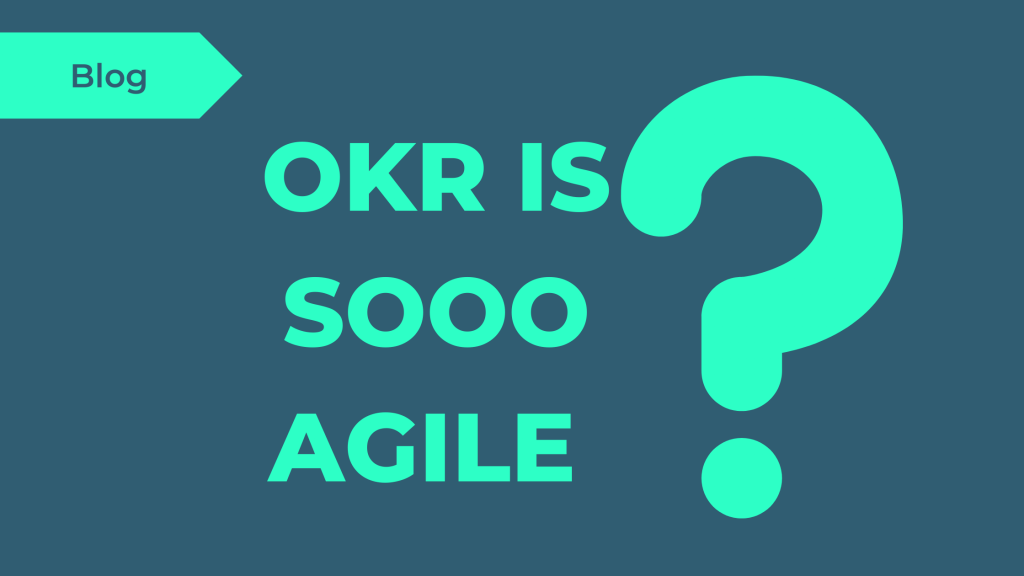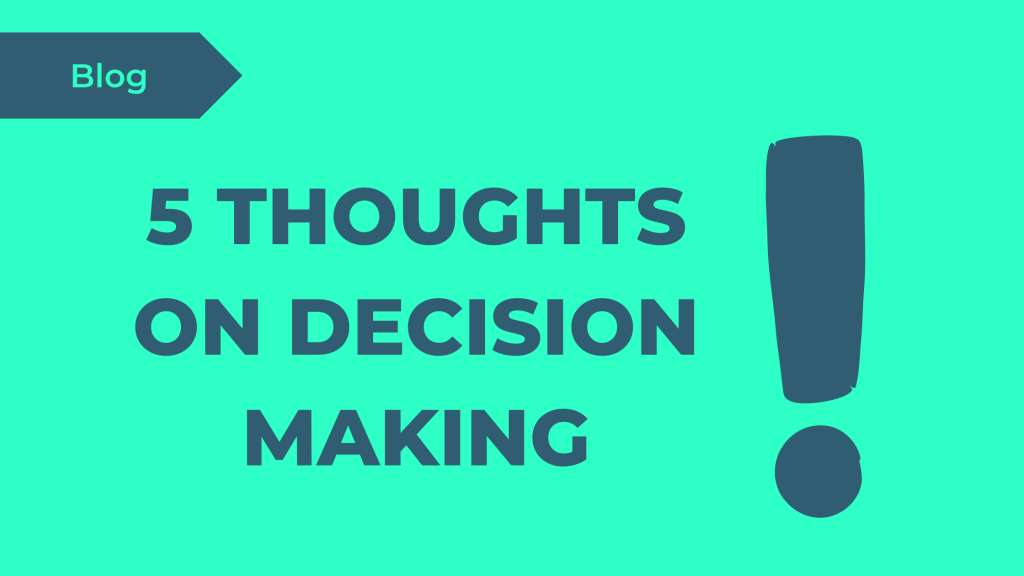4 reasons why i see OKRs as an agile framework
Is OKR an agile framework? Yes! And why not? I have a pragmatic opinion when it comes to agile practices and frameworks: Whatever helps a team to create awesome products and services in a fast-changing world, can call itself agile. Objectives & Key Results is one of these frameworks that fit into a holistic approach of being agile. You’re reading right: It’s about being agile instead of doing agile. In this article, I share with you 4 reasons why I see OKR as an agile framework. Therefore, I take the „Manifesto for Agile Software Development“ as a reference. As you know: both sides are important, but „we value the items on the left more.“
Individuals and interactions over process and tools
Through OKR you get more focus, transparency, and alignment within your organization. That’s the promise you get. But it won’t get reality if you just buy an OKR tool and force people to stick to your alignment process. Every single person in the company needs to understand the „Why“ of OKR. This works best with conversations and interactions between individuals. The OKR framework gives you regular events to bring teams together and make them speak! Especially the bi-weekly check-in meetings could leverage your agile collaboration to a next level.
Working software over comprehensive documentation
What do you want to achieve and why? OKR focuses on the outcome instead of output. Software and Documentation could both be seen as results or output. There’s nothing bad with output, but focusing on outcome helps you to solve problems for your customer instead of just writing documentation or building a feature. Working software helps you probably more to reach a specific outcome, e.g. like selling more goods in your webshop. Comprehensive documentation won’t do it. Focusing on the outcome helps you to focus on making things work for your customer.
Customer collaboration over contract negotiation
Top-Down and bottom-up – that’s how the alignment process within OKR looks like. It may sound to you like a long, long negotiation round and kind of signing contracts. You could be perceived like it, but moreover, it’s a chance for collaboration and interaction with your (internal) customer. Collaboration in the whole OKR process I value more than just delivering your team objectives on time.
Responding to change over following a plan
Inspect & adapt: that’s the magnificent power you get if you being more agile. Iterations help you to do so. With OKRs you work normally in three months cycle. Some (often large) companies experiment with four to six months cycles. Whatever helps you to break down your big vision into smaller pieces is good. By applying OKRs you get into the rhythm of reflecting and planning. You see what works (and what not) and you adjust as a team. Or with a Quote of Dwight Eisenhower: „Plans are worthless, planning is essential“. Therefore: be prepared for change. OKR will help you.
The agile values and principles go well together with Objectives & Key Results. That’s at least my opinion. In the end, it doesn’t matter which framework you use. The likelihood that an agile mindset will help you get ahead in a complex world is much higher..




